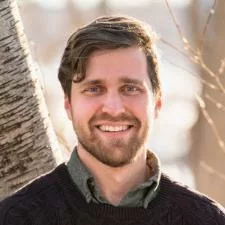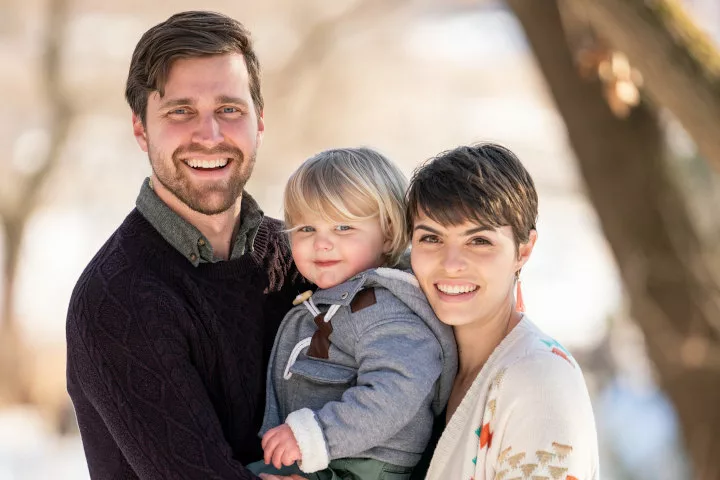Stem Cell Research: Celebrating 25 Years of Amazing Discoveries
Over the past two decades, stem cell research at UW–Madison has grown from involving a handful of scientists to nearly 100 from more than 30 schools, colleges and departments.
A close brush with death at age 15 set Christopher “Rufus” Sweeney down the path of becoming a doctor.
Sweeney had played three rounds of golf in the Oklahoma state tournament with a stomach ache that became so severe he collapsed. After what he describes as a very rushed exam, physicians at a public health center diagnosed him with Rocky Mountain Spotted Fever and prescribed antibiotics. When his condition became worse, Sweeney’s parents took him to a private hospital for a second opinion. There, doctors diagnosed him as having an appendicitis and immediately rushed him into surgery.

“The surgeon said my appendix had ruptured, and if I had waited to finish the course of antibiotics, I wouldn’t be here,” Sweeney recalls. “I was really sick, and when I compared my two hospital experiences, I thought, ‘I need to make an impact.’ I didn’t know what it would look like, but I knew I wanted to go into medicine.”
Job shadowing and working in the medical field during his undergraduate studies at Brigham Young University in Utah validated his career choice. Getting to the University of Wisconsin School of Medicine and Public Health (SMPH) was somewhat of a happy accident.
Attending school in the Badger State hadn’t been on his radar until he met a medical student from Yale University at a conference; that student told him that he liked Yale but wished he had chosen the SMPH because he sensed that it had a high level of support for students.
Applying to and attending the SMPH have been among “the best choices I’ve made in my life,” Sweeney says.
Now a third-year medical student, Sweeney notes that a culture of support is championed within the SMPH from the highest levels of leadership on to professors and staff, and further to the student body. His respect and appreciation for Associate Dean for Students Gwen McIntosh, MD ’96, MPH, and Associate Dean for Medical Education Shobhina G. Chheda, MD, MPH, runs deep.
“When I get a crazy idea, they don’t shoot me down,” Sweeney says. “They may offer suggestions if it seems that I’ve gotten my head in the clouds, but they’ll say, ‘Go for it! You know we’ll support you any way we can.’”
As an Oklahoma Choctaw, Sweeney also expresses his gratitude to Lina Martin and Danielle Yancey of the SMPH’s Native American Center for Health Professions.
Sweeney — who is known as a creative soul and prolific idea generator — says he inherited his entrepreneurial spirit from his paternal grandfather, who owned several gas stations, convenience stores and warehouses. Like him, Sweeney has been able to turn many ideas into reality with the support of SMPH faculty members and his partner, Miriam Bay Sweeney.
Rufus and Miriam Sweeney combined their knowledge and experiences — including his in medical school and from his work in admissions as an undergraduate student, and hers from degrees in technical editing and nonfiction creative writing — to launch Premed Muse (premedmuse.com) to help medical students write compelling personal statements. Rufus Sweeney also turned a bad experience with investing into a popular financial literacy elective for fourth-year medical students.

As newlyweds, the couple wanted to start planning for their financial future, and an acquaintance who worked for a large insurance company offered his services.
“He convinced us to invest in a product we didn’t really need — especially prior to making any money. We sunk a bunch of funds into the investment he recommended only to realize two years down the road that it was a really bad investment,” Rufus Sweeney shares. “We lost only enough to sting, but not enough to make a huge impact in the long run. But it was enough to get my attention and make me realize if this is a problem for me, it’s likely a problem for a lot of people.”
When Rufus Sweeney learned that the company targets medical and pre-med students in addition to salaried medical professionals, he decided that he needed to quickly start spreading the word.
Rufus Sweeney chose to focus on financial wellness for medical students through his summer research project between his first and second years at the SMPH. Chheda advised him to find a faculty leader so the project would be sustainable. As fate would have it, a meeting on an unrelated project led Rufus Sweeney to connect with Gregory Avey, MD (PG ’11), an associate professor in the Department of Radiology, who had been teaching a personal finance class to radiology fellows. Avey shared an interest in creating something to serve all SMPH students.
Having located a faculty partner and received a fellowship from the Wisconsin Medical Society, Rufus Sweeney began to put a plan into action. He recruited additional advisors, including Emma Crawford, manager of SMPH Financial Aid and Financial Wellness; Cliff Robb, PhD, associate professor in the personal finance major, UW School of Human Ecology; and Diana Wheeler, curriculum and electives manager of Phase 3 of the SMPH ForWard Curriculum. In March 2020, they launched an SMPH elective course called Radiology 914: Physician Financial Wellness.
The class has received positive evaluations, with multiple students sharing that it was the most personally valuable course they had taken in medical school. The two sections offered in spring 2021 filled immediately and had a waiting list.
In 2021, Rufus Sweeney and his team also secured a $100,000 AccessLex grant to research the course’s impact. With it, they will measure baseline differences between under-represented minority (URM) students and their non-URM counterparts. They will then measure whether their course achieves equitable outcomes — that there is no distinguishable difference in financial knowledge, self-efficacy and behaviors.
Rufus Sweeney notes, “The course is less about dollars and cents and more about how to create a fulfilling type of life for yourself.”
Pointing out that the course’s goal is to prepare students to navigate important junctures during their careers, he adds, “When we talk about contract negotiation, for example, we don’t focus just on how much money you can make. We talk about this in terms of what your ideal work life could look like and how to make that happen.”
He continues, “For an individual, this may not be as much about salary as about flexibility with their time. Each person needs to feel fulfilled to take good care of patients.”
As part of designing the life he wants, Rufus Sweeney envisions a career in preventive cardiology. And because he and his wife also have a 2-year-old son, Eliot, Rufus Sweeney decided to take a year off from classes to give himself time to focus on his next endeavor: creation of Longevity Solutions, an app to help American Indian patients reverse pre-diabetes.
“I have been impressed by Rufus’ generosity and humanity, which are foundations of his character,” says Avey. “The fact that he also has the grit and determination to implement the ideas conceived by his generous nature makes him an exceptional individual. Rufus is uniquely gifted in this regard. He is the sort of physician leader we need to nurture to help ensure the future of medicine.”